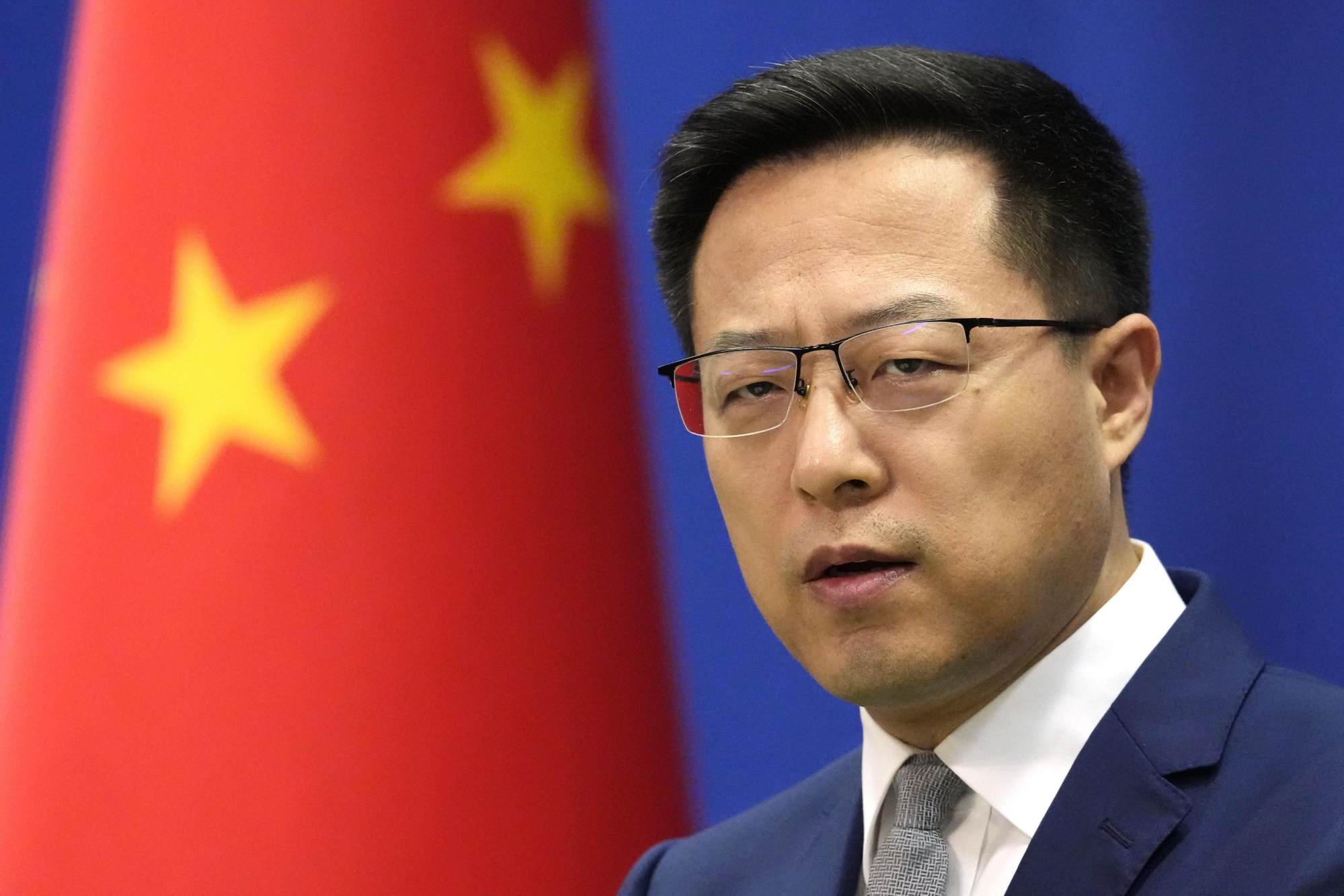
Why won’t the US, wary of China’s ambitions in the South China Sea, join a UN agreement on ocean rights?
- Senate resolution to ratify UN Convention on the Law of the Sea appears doubtful amid American culture wars despite enjoying some bipartisan support
- Even if US membership in Unclos could magically curb China’s maritime transgressions, ratification brings ‘significant costs’, analyst says
But when it comes to an international convention governing who has rights to what parts of the oceans – including critical minerals and other potential riches beneath the surface – these politicians have, at one time or another, been on the same page.
Yet the odds of a bipartisan US Senate resolution in the current congressional session to finally ratify the treaty appear slim, despite Unclos’ inclusion of principles long championed by the American government.
The resolution was introduced by Hawaii’s Mazie Hirono and her fellow Democratic senators Kaine, Jacky Rosen of Nevada, Chris Van Hollen of Maryland and Sheldon Whitehouse of Rhode Island. Alaska’s Lisa Murkowski joined Cassidy on the Republican side.
Washington’s goals and the ‘nine-dash line’
Washington’s participation in Unclos negotiations stretching from the 1970s to the 1990s meant that “we were a very strong presence in obtaining all of the US goals”, said James Kraska of Harvard Law School and the Naval War College.
“We achieved our goal for transit passage through international straits, primarily so that US ballistic missile submarines … don’t have to be on the surface and show their flag, which is essential for strategic stability [and] the US alliance system,” he added.
The 2016 ruling had seemed to settle a dispute between China and the Philippines over which side had rights to fish around Scarborough Shoal, some 220km (120 nautical miles) off the coast of the Philippines’ largest island of Luzon.
China’s PLA hails ‘constructive’ US talks, but hits out at Pentagon budget
It also struck at the heart of Beijing’s efforts to ring-fence a huge portion of the ocean for its own military outposts, fishing fleets and exploration rigs.
The tribunal further ruled that China’s reefs and holdings in the Spratly Islands, including Taiping Island, were “legally ‘rocks’ that do not generate an exclusive economic zone [of 200 nautical miles] or continental shelf”.

America’s opposition to Unclos
In many of these instances, Washington has weighed in on the side of Beijing’s opponents, only to have Chinese officials deflect with a fact that, for many, undercuts the official American position: the US is one of only three UN member states to have signed but not ratified Unclos.
By 1994, during the Bill Clinton administration, the State Department determined that being left out of Unclos would work against Washington’s interests.
Is Beijing warming to South China Sea code of conduct?
Clinton signed the agreement and sent it to the Senate for ratification, just one month before that year’s midterm elections.
During Helms’s tenure, the matter did not return to the Senate, where international treaties require a two-thirds majority approval.
‘Military disputes’ and the ‘cost of Unclos’
The current tribunal comprises 21 independent members elected by secret ballot, including one nominated by China.
Itlos can determine, among other points, whether a dispute involves military activities, which it will not adjudicate.
This can be contentious given that Washington does not consider its navy’s freedom-of-navigation operations in the South China Sea as such. However, Beijing does.
American resistance to such supranational authority, particularly among Republicans, has only hardened. Washington follows a policy of Unclos compliance based on “customary international law” without official accession.
This policy has worked in America’s favour for years, according to Stephen Groves of The Heritage Foundation, a conservative Washington think tank.
“Beijing famously lost a major Unclos arbitration case to the Philippines regarding China’s chronic treaty violations in the South China Sea,” Groves said in a June 2022 commentary.
Will more assertive Philippine approach to South China Sea pay off?
“Did China respect the arbitral tribunal’s decision and reform its behaviour? Of course not. Nor will it, regardless of US ratification.
“Even if US membership in Unclos could magically curb China’s maritime transgressions, ratification comes with significant costs.”
Critics of Unclos also insist that because the treaty is based on the “customary international law” recognised by Washington, the framework is redundant.
The US case for joining Unclos
Those favouring ratification counter that ratification would undercut Beijing’s argument that Washington only sides with China’s neighbours when doing so is convenient.
Russia’s extended territory there, as proposed in several submissions to the UN Commission on the Limits of the Continental Shelf (CLCS) dating back to 2001, would encompass 70 per cent of the Arctic Ocean beyond what falls within its exclusive economic zone. CLCS operates under Unclos auspices.
As Alaska’s governor in 2007, Palin, now a commentator on right-wing media, wrote to the Senate Foreign Relations committee to “put my administration on record in support of the convention as the predicate for asserting sovereign rights that will be of benefit to Alaska and the nation”.

While the threat of a “hot” versus cold war between the US and China over conflicting territorial claims has steadily boosted the rationale for supporting the resolution, a culture clash in the US has worked against Hirono, Cassidy and the other sponsors, who apparently do not want to conflate the two.
Backers of Unclos ratification have used the US Navy’s warnings in their resolution to strengthen their argument.
These include testimony by Admiral Lisa Franchetti, chief of naval operations, and John Aquilino, commander of the US Indo-Pacific Command, who told the Senate Armed Services Committee in 2021 that “it would make our position much stronger if we were signatories”.
Beijing, Manila dispute details of latest South China Sea military encounter
Post-Trump American isolationism
Nevertheless, the Senate Foreign Relations Committee remains silent about Unclos. A response to an emailed query said only the committee had “nothing to contribute to this story at this time”.
The committee members not sponsoring the resolution declined to answer queries from the Post, except Todd Young, whose staff said the Indiana Republican “has not taken a position”.

“This is one of many things that’s got caught up in the culture wars,” Doremus said. “The expectation was that it would be ratified because the military was on board … but these concerns about global entities controlling the conduct of the United States got in the way.”
John Bellinger advocated ratification while serving as legal adviser for the State Department and the National Security Council during the administration of George W. Bush and as a witness for the Senate Foreign Relations Committee in 2012.
“Unfortunately, the Senate is unlikely to vote to approve the Law of the Sea Convention any time soon,” he said in an emailed response to questions from the Post.
“The convention has always been controversial among some Republicans, who believe it infringes on US sovereignty, and there are far fewer internationally minded Republicans in the Senate than 15 years ago.”
Indonesia’s South China Sea remarks show a ‘level up’ of support for claimants
And lawmakers are not the only ones who appear gun-shy in commenting on Unclos. Companies with a stake in deep-seabed mining rights have been reluctant as well.
Corporate concerns and mineral rights
Near-misses between warships aside, the global race for critical minerals and Washington’s bilateral interest in sourcing them raise the stakes when it comes to international agreements over these rights.
“It’s impossible to go it alone in this area because all these companies that are capable of doing it like Northrop Grumman or [RTX division] Hughes or one of these major defence contractors that are capable of getting together a billion dollars to go exploit a deep-seabed mining site will not do so without … legal surety,” he said.
The US has one of the longest coastlines, giving the country a combined exclusive economic zone, as defined by Unclos, that is roughly double the size of California.
That said, US mining companies have yet to announce any major deep-seabed projects in these areas, and the industry is not showing any signs of agitation.
Neither Northrop Grumman nor RTX, formerly Raytheon, responded to requests for comment. The US Chamber of Commerce also did not respond.
Without clear signals from Congress, the Biden administration has moved ahead with one initiative that would align with Unclos membership.
Last month the State Department released the geographic coordinates defining the outer limits of America’s continental shelf “in accordance with customary international law and [Unclos]”.
With uneasy eye on China, India and Philippines vow stronger cooperation
The area, delineated using Unclos measurement standards, amounts to about 1 million sq km (386,000 square miles) spread across seven regions, including one in the western Pacific Ocean near the US territories of Guam and the Commonwealth of the Northern Mariana Islands.
While Washington’s demarcation fits with Unclos, the US will not be able to obtain an arbitral ruling to legitimise it internationally without ratifying the treaty.
“There’s a belief behind [congressional resistance to Unclos] that … it’s better for us to go our own way and ignore what the rest of the world wants,” Doremus said.
“But the world really has changed over the past 20, 25 years in that respect with the rise of China militarily with the availability of subsea resources.
“Maybe that makes the calculus matter, but I think the reason I raised the culture war point is to say this is not necessarily a rational decision for many US lawmakers.”

